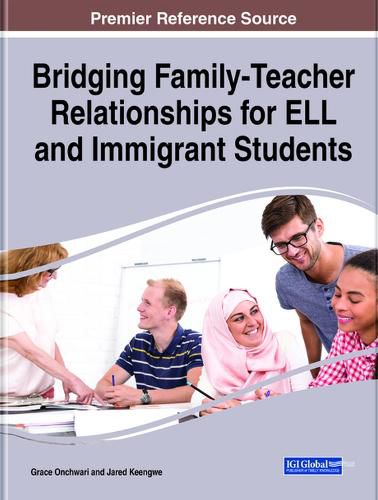Readings Newsletter
Become a Readings Member to make your shopping experience even easier.
Sign in or sign up for free!
You’re not far away from qualifying for FREE standard shipping within Australia
You’ve qualified for FREE standard shipping within Australia
The cart is loading…






This title is printed to order. This book may have been self-published. If so, we cannot guarantee the quality of the content. In the main most books will have gone through the editing process however some may not. We therefore suggest that you be aware of this before ordering this book. If in doubt check either the author or publisher’s details as we are unable to accept any returns unless they are faulty. Please contact us if you have any questions.
Recent research suggests that good relationships between parents and their children’s providers or teachers could lead to positive outcomes for children and families. Positive, mutually respectful, and collaborative relationships between families and schools and education providers and teachers contribute to young children’s school readiness, increase positive family engagement in children’s programs, and strengthen home-program connection, a critical factor to children’s school success.
Bridging Family-Teacher Relationships for ELL and Immigrant Students is a comprehensive reference source that focuses on research-based pedagogical practices for teaching young English language learners (ELL) and immigrants. It specifically looks at strategies across the curriculum including social-emotional development, parent involvement, language development, and more. While highlighting major themes that include academic engagement and achievement among ELL and immigrant children, factors affecting partnerships with schools and home, the impact of home environments on school readiness, and student performance, this book shares pedagogical practices across different subjects that use partnerships with families of ELL/immigrants. It is intended for classroom teachers (early childhood and K-12), parents, faculty, school administrators, academicians, professionals, researchers, and students interested in family-teacher relationships.
$9.00 standard shipping within Australia
FREE standard shipping within Australia for orders over $100.00
Express & International shipping calculated at checkout
This title is printed to order. This book may have been self-published. If so, we cannot guarantee the quality of the content. In the main most books will have gone through the editing process however some may not. We therefore suggest that you be aware of this before ordering this book. If in doubt check either the author or publisher’s details as we are unable to accept any returns unless they are faulty. Please contact us if you have any questions.
Recent research suggests that good relationships between parents and their children’s providers or teachers could lead to positive outcomes for children and families. Positive, mutually respectful, and collaborative relationships between families and schools and education providers and teachers contribute to young children’s school readiness, increase positive family engagement in children’s programs, and strengthen home-program connection, a critical factor to children’s school success.
Bridging Family-Teacher Relationships for ELL and Immigrant Students is a comprehensive reference source that focuses on research-based pedagogical practices for teaching young English language learners (ELL) and immigrants. It specifically looks at strategies across the curriculum including social-emotional development, parent involvement, language development, and more. While highlighting major themes that include academic engagement and achievement among ELL and immigrant children, factors affecting partnerships with schools and home, the impact of home environments on school readiness, and student performance, this book shares pedagogical practices across different subjects that use partnerships with families of ELL/immigrants. It is intended for classroom teachers (early childhood and K-12), parents, faculty, school administrators, academicians, professionals, researchers, and students interested in family-teacher relationships.